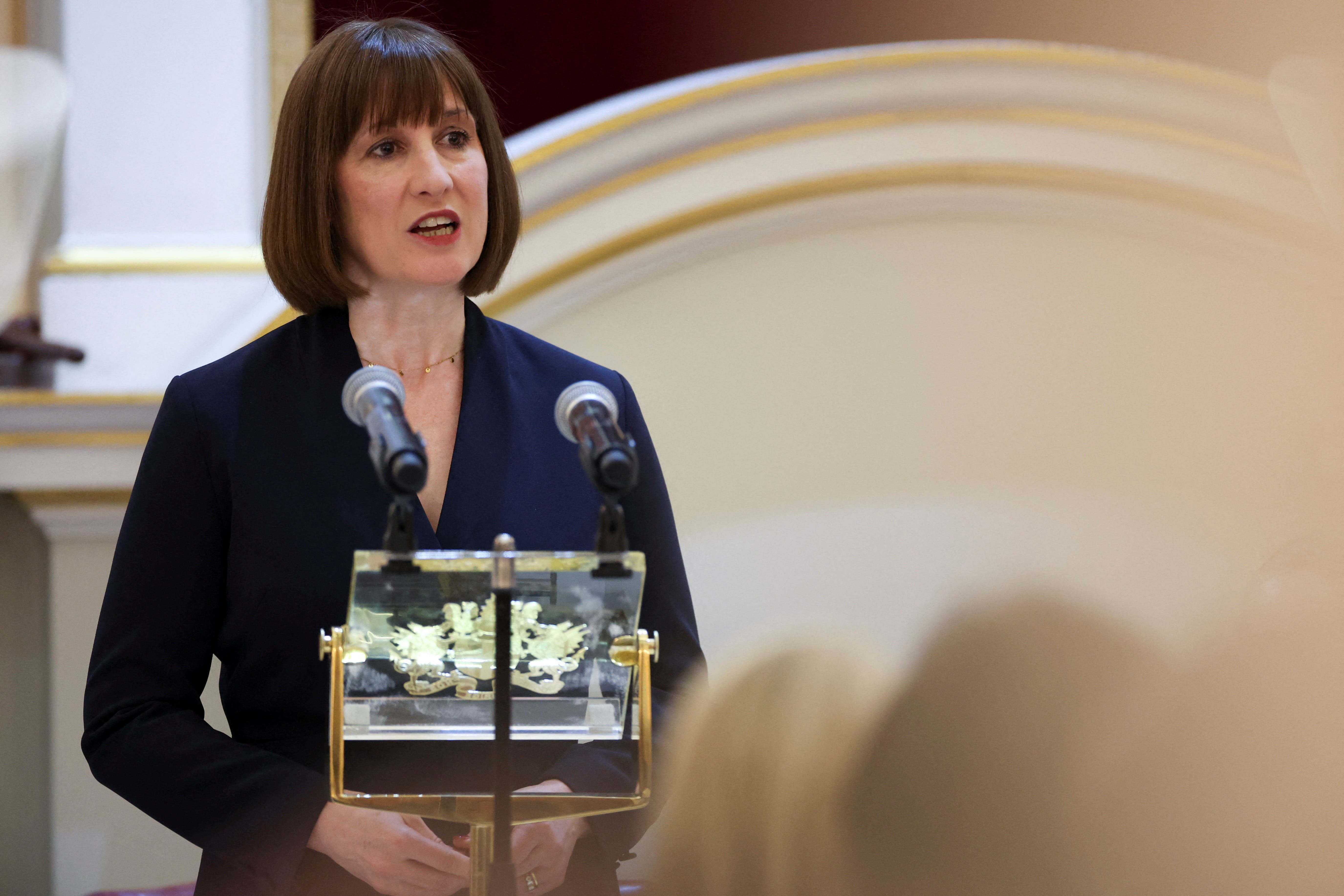Why did the UK economy slow in the third quarter, and what does it mean?
The PA news agency looks at what fresh GDP figures mean for the wider UK economy, households and the Government.

Your support helps us to tell the story
From reproductive rights to climate change to Big Tech, The Independent is on the ground when the story is developing. Whether it's investigating the financials of Elon Musk's pro-Trump PAC or producing our latest documentary, 'The A Word', which shines a light on the American women fighting for reproductive rights, we know how important it is to parse out the facts from the messaging.
At such a critical moment in US history, we need reporters on the ground. Your donation allows us to keep sending journalists to speak to both sides of the story.
The Independent is trusted by Americans across the entire political spectrum. And unlike many other quality news outlets, we choose not to lock Americans out of our reporting and analysis with paywalls. We believe quality journalism should be available to everyone, paid for by those who can afford it.
Your support makes all the difference.Economic growth slowed across the UK between July and September, according to the most recent official figures.
Chancellor Rachel Reeves has said she is “not satisfied” with the numbers, which showed the economy growing by just 0.1% in the quarter following Labour’s election win.
But what does this actually tell us, and what impact will it have? The PA news agency explains.
– What is gross domestic product?
Gross domestic product, or GDP, is the term typically used to describe the size of a nation’s economy.
It is the measure of what is going on financially across all companies, governments and households.
Economic growth happens when households and firms are spending more money and creating more jobs, while a contraction is when people and firms are pulling back spending.
– What happened?
On Friday, the Office for National Statistics (ONS) said GDP grew 0.1% for the three months to September.
That is only a small increase, and it comes after the economy grew 0.5% in the previous quarter, from April to June.
Things still look relatively weak compared to the first half of 2024, when the economy was bouncing back fast from a recession in late 2023.
Liz McKeown, ONS director of economic statistics, said some sectors like retail and construction performed well, but added: “Generally, growth was subdued across most industries in the latest quarter.”
– Why did it slow down?
Several experts said the slowdown could have been down to companies holding back on spending decisions until after the Budget.
Ben Jones, lead economist at the Confederation of British Industry, said uncertainty in the run-up to the autumn Budget “probably played a big part”, after firms reported a slowdown in making spending decisions.
The services sector, which includes things like shops, leisure activities, finance firms and many more, was flat in September, and grew by just 0.1% during the three-month period.
Because it is such a big part of the economy, about 80%, that was a key driver of overall GDP.
The construction sector saw 0.8% growth, while the smaller production sector contracted by 0.2%.
We see growth picking up a touch towards year-end. And we still see positive momentum into 2025
– What does this mean for the Government?
Economic growth slowing is usually seen as a bad thing, and Chancellor Rachel Reeves said she was “not satisfied with these numbers”.
A number of surveys showed companies held back on spending in the months before the October Budget, which Ms Reeves repeatedly warned would include “tough decisions”.
Shadow chancellor Mel Stride said it had been Labour’s “mission to talk down the UK economy”.
But it is uncertain how much of the slowdown can be put down to the current Government, which only came into office about a week into July.
Luke Bartholomew, deputy chief economist at the investment giant Abrdn, said it is “also possible that this just represents normal monthly volatility rather than anything more fundamental”.
– Will it affect Labour’s spending plans?
Probably not. Ms Reeves said on Friday morning that she wanted growth to “be stronger, to come sooner, and also to be felt by families right across the country”.
And the Budget, in which Labour also announced a £70 billion boost in public spending, came after the period covered by these figures.
Sanjay Raja, chief UK economist at Deutsche Bank, said “The road ahead remains bumpy.”
He warned that the tax rises could hit business spending further before Labour’s spending plans start having a positive impact early next year.
“We see growth picking up a touch towards year-end. And we still see positive momentum into 2025,” he said.
– What about the Bank of England?
The Bank of England’s policymakers will be keeping a close eye on GDP figures to assess when they can next cut the base interest rate.
This affects how expensive it is to borrow money, and dictates things like mortgage rates from high street banks.
The Bank’s Monetary Policy Committee cut interest rates by a quarter point to 4.75% in early November, with another rates decision coming in December.
But Suren Thiru, economics director at the Institute of Chartered Accountants in England and Wales said that despite the “downbeat” figures, another rate cut next month looks “improbable”.
He said rate setters will “likely be concerned enough over inflation risks from the Budget and growing global headwinds to resist signing off back-to-back interest rate cuts.”